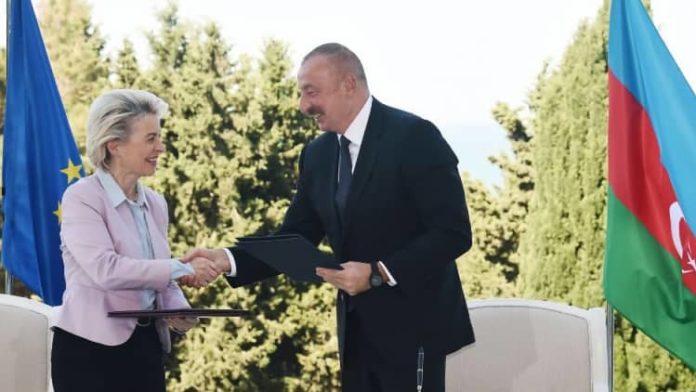By Alexander E. Gale
During a press conference in July, the European Commission’s president, Ursula von der Leyen spoke of the need for the EU to “diversify away from Russia and turn towards more reliable, trustworthy partners.” She cited “Russia’s brutal invasion of Ukraine” as a reason to move away from Russian gas. She was joined by Azerbaijani president, Ilham Aliyev, to announce an agreement for Azerbaijan to double its delivery of gas to the EU. The irony that Aliyev’s authoritarian regime has been implicated in war crimes and corruption was apparently lost on von der Leyen.
The past year has posed several dilemmas to European energy security. The EU is highly dependent on gas from Russia. Last year, 39.7 percent of the EU’s imported gas came from Russia. However, Putin’s invasion of Ukraine has threatened the reliability of this source of energy.
EU members are concerned that Moscow will cut off gas supplies in retaliation for widespread sanctions levied against the Russian economy and Western military support for Ukraine. Indeed, this summer, Russia cut gas from 170 cubic meters a day to 20, supplied via the Nord Stream 1 pipeline. Over the past year, Moscow has cut its total export of gas to Europe by approximately 88 percent.
In late September, Explosions disrupted the operation of the Nord Stream 1 and Nord Stream 2 pipeline and further heightened fears that the flow of natural gas from Russia would not reach Europe. The EU has not blamed Russia directly but suspects sabotage.
Gas is central to the EU’s energy security. Households in EU member states use gas as their primary source of energy at about 32.1 percent. Gas also makes up 21.5 percent of the EU’s primary energy consumption. Most gas is imported. Only 20 percent of the EU’s demand for gas is met by domestic production, which itself has halved over the past 10 years.








